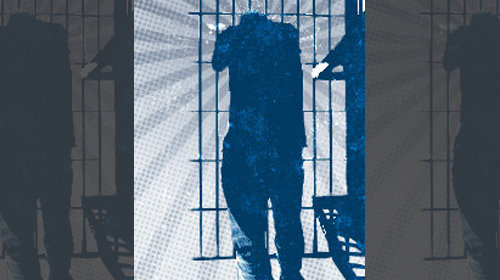
Last week, the Department of Justice released the long-awaited Prison Rape Elimination Act (PREA) regulations, representing the first time that the federal government has issued national standards to help end sexual abuse in correctional facilities. The regulations are two years late and a lot of harm has been done in their absence, but now they will help protect important constitutional and human rights and ensure safe and fair correctional facilities that assist prisoners in rehabilitation rather than needlessly brutalizing them. This is the first of three blogs marking the occasion.
Last Thursday’s release of the long-delayed national Prison Rape Elimination Act (PREA) regulations by the Department of Justice reminds us of the hundreds of prison rape victims we’ve heard from over the years who could not seek justice because the prison officials who failed to protect them were essentially immunized from liability by a 1996 federal law, the Prison Litigation Reform Act (PLRA). The announced purpose of the PLRA was to curb the filing of frivolous litigation by prisoners. In reality, the law makes it impossible for most prisoners to file any civil rights claims, regardless of their merits. Last week, the Department of Justice took a first step to solving the problems created by this discriminatory and harmful law.
For nearly 20 years, the PLRA has slammed the federal courthouse doors on rape victims who happen to be prisoners. For instance, the law requires prisoners who have been sexually assaulted while incarcerated to navigate the full internal grievance process at their facility before going to court – no matter how complicated, unrealistic or illogical that process may be. Due to trauma, hospitalization or other medical or mental health issues, most rape survivors are unable to meet the deadline for filing a grievance, which often falls within days of an assault. In some places, prisoners are required to file their complaints with a specific officer, even if that officer participated in the abuse.
To make matters worse, these harsh provisions of the PLRA also apply to incarcerated youth even though no one has ever claimed that children were part of the problem PLRA was allegedly designed to fix. Detained and incarcerated kids do not file frivolous litigation, and children behind bars are the most vulnerable to abuse and sexual assault, but PLRA undermines the ability of parents, guardians and advocates to keep them safe.
The case of a boy in Indiana who was incarcerated at a juvenile detention center illustrates the destructive power and unfairness of the PLRA. While incarcerated, the child was held down by three of his fellow prisoners and raped by a fourth. His fellow prisoners also repeatedly beat him with socks containing padlocks. The prison officials did nothing to stop the abuse, despite several frantic and worried efforts by his mother, who called prison officials, courts officers and even the governor of Indiana to do something about the abuse. The child did not file a formal grievance because he was afraid of retaliation and more abuse.
The court threw out his case because he had failed to file a formal grievance within in two business days, despite the fact that he was a minor, and despite the fact that he was very afraid to file charges because he did not want to be raped again. It is unfair and unreasonable for the government to give a boy only 48 hours to file a grievance after he has been raped. Most children do not understand the grievance system to begin with.
Yesterday, the Department of Justice helped correct some of the injustice victims of prison rape suffer by publishing new regulations for addressing prison rape under the Prison Rape Elimination Act. The PREA regulations mandate that correctional agencies may not impose a time limit on the filing of prison grievances that allege sexual abuse. The Department also mandated that third parties, such as parents and attorneys, be allowed to initiate sexual abuse grievances as long as the prisoner consents; that agencies cannot require prisoners to seek “informal” resolution of sexual abuse complaints before submitting a formal request for administrative remedies; and that agencies must ensure that prisoners are not required to submit a grievance to the alleged abuser.
PREA goes a long way to help curb sexual abuse in prison, but much more needs to be done to address the worst problems created by the PLRA. Congress has twice introduced legislation to fix the PLRA and restore justice to all victims behind prison walls. It’s time for Congress to finish the job.
Learn more about sexual abuse in prison: Sign up for breaking news alerts, follow us on Twitter, and like us on Facebook.
